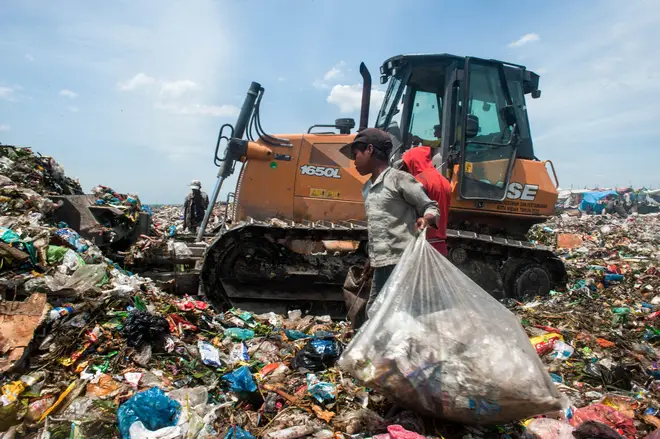
Henry Riley 7pm - 10pm
2 November 2021, 13:50 | Updated: 2 November 2021, 14:03

At least 80 countries have signed up to a climate pledge at COP26 to slash methane emissions, a major driver of climate change.
The pledge put forward by the US and EU and could slow global warming in the short term.
US President Joe Biden hailed the commitment from "approaching 100" countries who have pledged to cut their methane emissions.
He thanked those who have signed the "game-changing commitment" led by the US and EU.
"One of the most important things we can do in this decisive decade to keep 1.5 degrees is reduce our methane emissions as quickly as possible," he said.
"It's one of the most potent greenhouse gases there is. It amounts to about half the warming we are experiencing today."
Yesterday, heads of state agreed to reverse deforestation by 2030 in the first breakthrough at the Cop26 climate summit.
The Prime Minister hailed it as a landmark agreement.
European Commission president Ursula von der Leyen said cutting back on methane emissions "is one of the most effective things we can do" to hit the target of limiting the rise in global average temperatures to 1.5C.
Read more: 100 countries including Brazil pledge to protect and restore earth's forests
Read more: Jeff Bezos tells COP26 trip to space made him realise how 'fragile' planet is
She said: "We cannot wait for 2050, we have to cut emissions fast. It is the lowest hanging fruit."
Major sources of methane include agriculture, and leaks from oil and gas production and landfills.
She said the "greatest potential" for curbing methane levels comes from the energy sector.
The announcement formed part of efforts at Cop26 in a range of sectors, characterised by Mr Johnson as "coal, cars, cash and trees", to drive momentum on reducing emissions, alongside national plans by countries to cut climate-warming pollution in the next decade.
Current national action plans to curb emissions leave the world way off track to meet global goals to keep temperature rises to "well below" 2C above pre-industrial levels and to aim for a less dangerous 1.5C limit.
Scientists have warned global temperatures will rise by 3C by the end of the century if action isn't taken now, with potentially catastrophic consequences.
Countries at Cop26 are under pressure to keep the 1.5C goal in reach, deliver on climate finance to help poorer nations tackle the crisis, and finalise parts of the global Paris climate treaty.